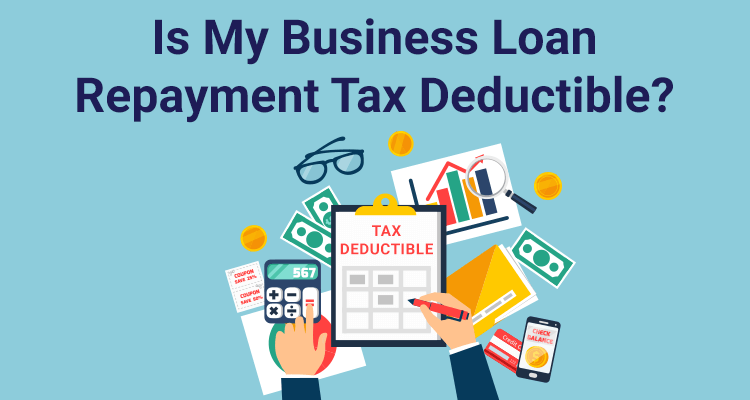Is My Business Loan Repayment Tax Deductible?
Table of Contents
Money is the most critical ingredient for starting and running a business and, with a few exceptions, business loans tend to be the fuel for powering most businesses. These business loans do not just help in buying a machine or paying vendors or even rent for the office premises and wages to employees but also help build a neat credit score to borrow more in the future, if repaid on time.
At the same time, the business loans also come with certain tax benefits and are particularly helpful if a business is already generating profit or is about to become profitable. This is by reducing the tax outgo and in some cases even coming out of the tax net altogether by showing business expenses.
Accounting Treatment For Business Loans
In every country the government imposes a tax on the profit or net income generated by businesses for a financial year. Taxpayers must file an income tax return to determine their tax obligations. It is done on an annual basis. There are also advanced taxes based on certain thresholds.
As per the Income-Tax Act of 1961, income-tax is levied on net income and not on gross income for a particular financial year. Gross income and net income are important accounting terms that help to understand how well a business is doing and to realize tax.
While gross income is the total income or revenue a business earns, net income is the gross income minus expenses. Gross income is the income from sales of products or services, after excluding the sales returns and allowances. Net income is the income of a business minus expenses.
Business loans lead to an inflow of money into the account. However, it is not considered part of income or revenue as it isn’t. So, the principal sum borrowed is out of the tax net.
The interest payable by the borrower on the business loan actually brings a tax benefit. It is considered a business expense in effect and is not part of the taxable income or revenue of the enterprise.
Business Loans That Offer Tax Benefits
Various types of business loans offer tax benefits are it term loans, machinery loan, merchant cash advance, overdraft facility, letter of credit or bill discounting, these are some business loans that give borrowers tax benefits.
Borrowers availing term loans, either for short-term or long term working capital, can lower their tax liabilities through these deductions. The mode of availing the loan does not matter. So, even a business loan secured online and through business credit cards are also eligible for tax deduction.
Sapna aapka. Business Loan Humara.
Apply NowIn most jurisdictions, however, loans from only recognized lenders are considered a legitimate business loan and only those loans are considered for tax benefits.
Tax Deductible Portions
An important distinction comes in what part of repayment is tax deductible. While repaying the loan, there are two components that are at play as an outgo. One is the original principal amount that was borrowed and the other is interest charged on the loan. The interest is a percentage of the loan amount.
In tax treatment, only the interest outgo is considered as a financial expense and deducted from the taxable income. What this means is that if an entrepreneur has taken a Rs 10 lakh business loan at 15% interest rate for a year, of the total Rs 10,83,100 that he/she or the company has to pay back, only Rs 83,100 can be claimed as a tax deductible.
The principal amount is not shown as a revenue or income and at the same time its repayment is not considered for the tax benefit.
This is different from a personal housing loan where the interest payments during the year as also the principal amount being paid back in a year has a tax deduction under different sections.
Notably, interest payments even for personal loans taken for business purposes can be deducted from taxable income.
Conclusion
Business loans help power a company big or small. The good news is that they also come with some tax benefits. When a business loan is repaid there are two components, one is the principal sum that was borrowed and the rest is interest rate to be paid for availing the loan.
The tax laws do not treat the loan as a revenue and is not added to the taxable income. At the same time, the interest paid during the financial year is deducted as a financial expense and helps bring down the tax component for a profit generating company.
However, to avail tax deductions, you must take loans only from recognized banks and non-bank lenders like IIFL Finance. Loans from local moneylenders or unrecognized lenders will not be considered a legitimate business loan and won’t get tax benefits. Moreover, well-known lenders like IIFL Finance also offer different types of business loans at competitive interest rates and flexible business loan repayment features.
Sapna aapka. Business Loan Humara.
Apply NowDisclaimer : The information in this blog is for general purposes only and may change without notice. It does not constitute legal, tax, or financial advice. Readers should seek professional guidance and make decisions at their own discretion. IIFL Finance is not liable for any reliance on this content. Read more




